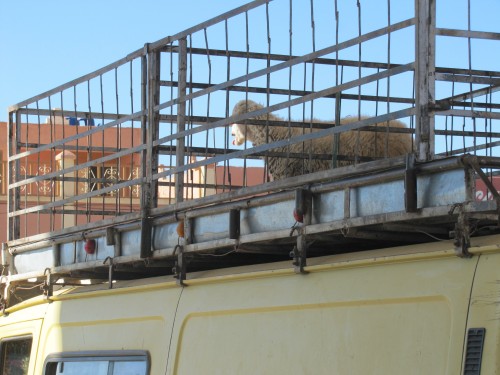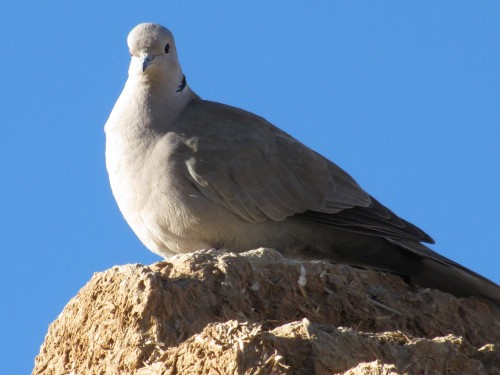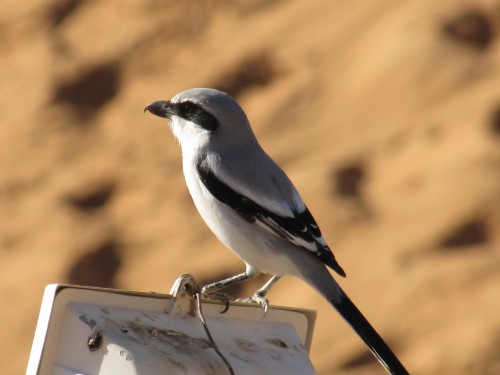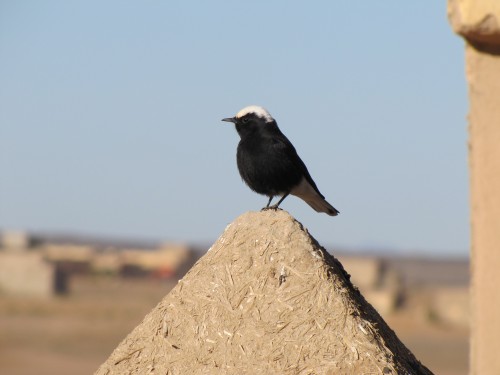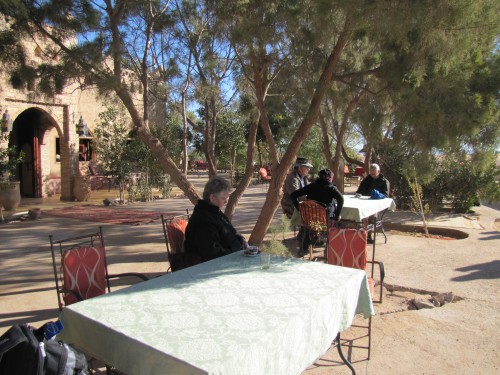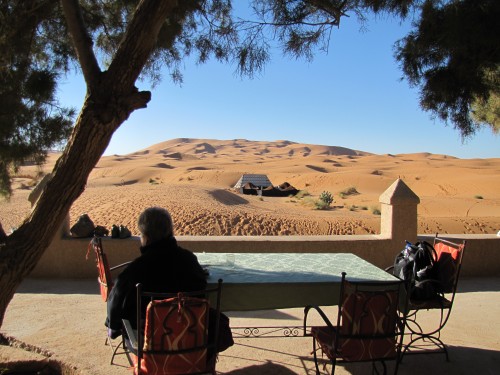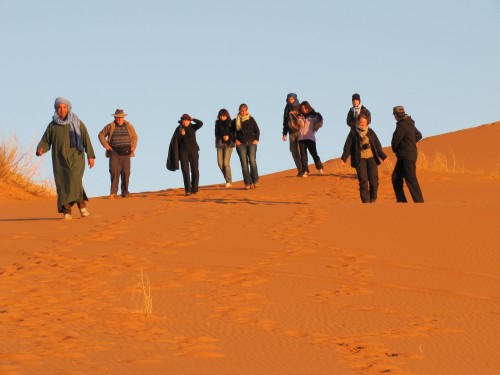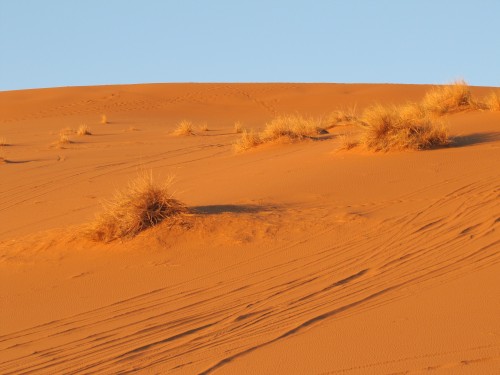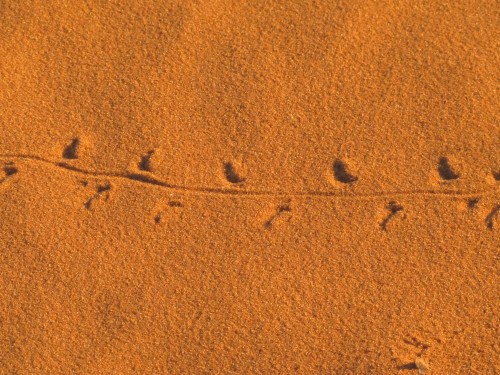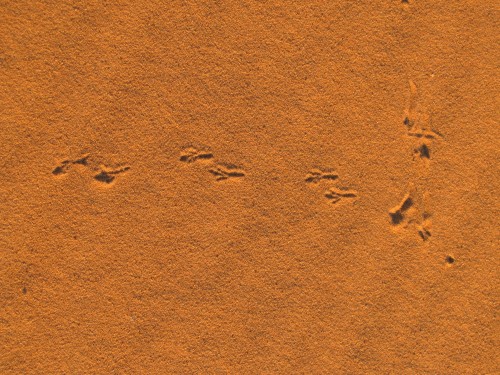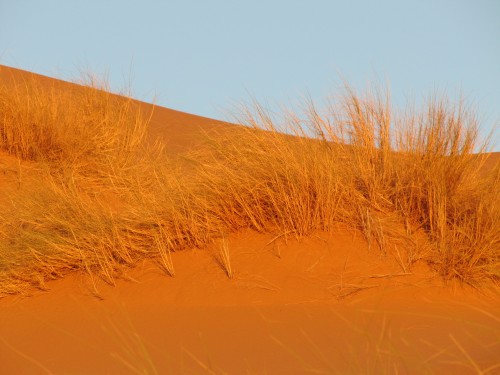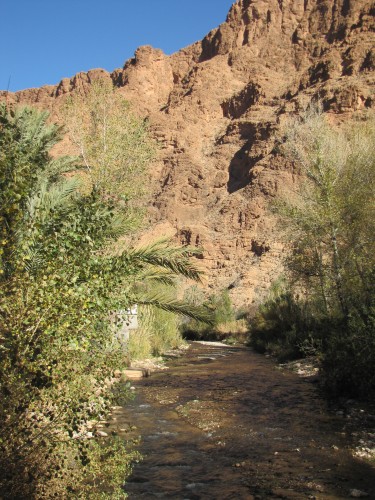
Gorge in eastern Morocco
It was fascinating visiting Morocco. I really had little idea of what the countryside would look like. Every day seemed different, every turn of the road we took opened up new vistas and interesting glimpses of life in this magical country.
After visiting the deep colours of the Sahara – see my previous posts – we travelled in a south-easterly direction. I am not entirely certain as to where today’s photos were taken, but our tour pamphlet indicates this was in the Todra Gorge and the Dandes Valley. If any of my readers can enlighten me further, please leave a comment or two, thanks.
The photo above shows a beautiful stream flowing through a deep gorge. The surrounding country is harsh and dry, stony and wind-swept. This little oasis was a pleasant change from the stark surrounding countryside. The photo below shows the entrance to the place where we had lunch, another quiet, serene escape from the bustle of city life in the medinas further west.
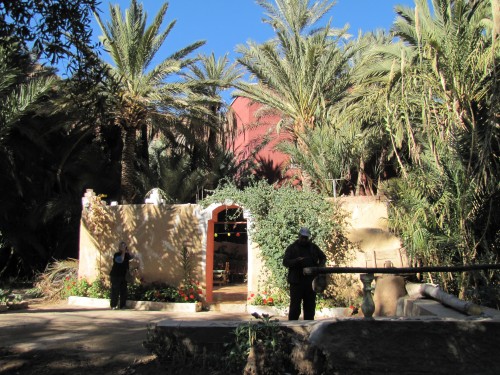
A serene retreat for lunch
As we travelled along we saw sudden drops over a steep escarpment into the valleys below. The people living in this valley were in verdant farming country, in many places only a short walk to the surrounding desert-like country all around. What a difference reliable water makes to an environment. We actually saw much evidence in many parts of the country of the efficient use of water. Perhaps many farmers here in Australia could learn from the Moroccans in the best use of a scarce resource like water. Just a thought.
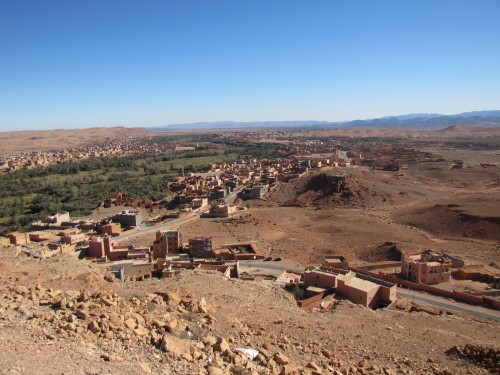
Morocco – Dandes Valley?
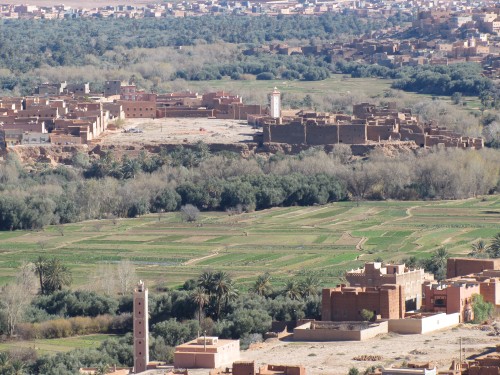
Morocco – Dandes Valley?
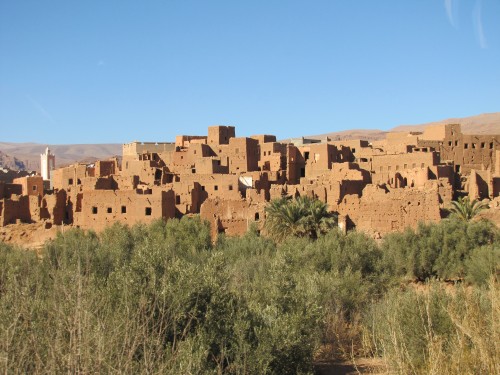
Morocco – Dandes Valley?
